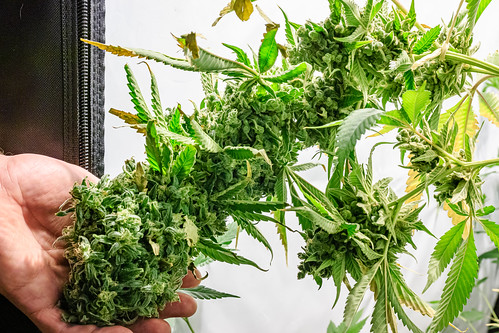U.S, August 13, 2019 (ANALYTICALCANNABIS) Cannabis users are more likely than non-users to forget to carry out tasks when operating under acute stress, according to new research from researchers at Washington State University.
The study, published in the journal Psychopharmacology, compared the performances of forty cannabis users versus forty-two people with no history of cannabis use when asked to complete a simple prospective memory task after taking a high-stress or no-stress version of the Maastricht Acute Stress Test (MAST).
This study is the first to show that an acute stressor can adversely affect prospective memory and may be further exacerbated by cannabis use.
Cannabis use linked to poorer performance under stress
At the outset of the experiment, each participant was asked to rate their current stress level, and provide saliva samples to be used for cortisol (a hormone key to the stress response) level testing.
Participants were also asked to give the researchers an important belonging, such as their keys or a piece of identification. They were then instructed to remember to ask for the item back after they finished a series of psychological tests.
After answering questions about demographics and baseline stress, participants were randomly assigned to complete five trials of either a no-stress or high-stress version of the MASTs. The no-stress variation required participants to place one hand in lukewarm water for 45-90 seconds, then count from 1 to 25. The high-stress version had the participants place their hand in ice water for 45-90 seconds and count backwards from 2043 in intervals of 17, with errors resulting in negative feedback and an instruction to begin again. At the start of the MAST, participants were also told to remember to verbally state a pain rating (out of 10) when removing their hand from the water during each trial.
At the end of the trials, participants were asked to rate their overall stress once again and provide a further saliva sample for a final cortisol test. Experimenters were kept blind as to whether a participant used cannabis, with this only being revealed upon the testing of a urine sample taken at the end of the experiment.
“Prospective memory is our ability to remember to execute tasks in the future (e.g., pick a child up from school, take medication on schedule) and is critical to our ability to function in everyday life,” explained lead author Dr Carrie Cuttler to PsyPost.
“Research regarding the impact of cannabis use on prospective memory has been largely mixed. Further, previous research has indicated that acute stress may facilitate prospective memory performance. Given that chronic cannabis users demonstrate a blunted stress response, we reasoned that this might translate into impaired prospective memory task performance in chronic cannabis uses.”
Contrary to a small body of existing research, the researchers here found that higher levels of stress were generally correlated with a worse prospective memory performance. But, like with previous studies, their conclusions on the added effect of cannabis use were also mixed.
Participants who self-reported chronic stress were the most likely to forget to ask for their belongings back, irrespective of whether they used cannabis or not.
Those who underwent the high-stress version of the MAST were the most likely to forget to indicate how painful they found each trial when removing their hand from the water. But within the high-stress test, cannabis users were generally more forgetful than their counterparts with no history of cannabis use.
“Our findings indicate that acute stress was detrimental to prospective memory task performance and that this effect was magnified in chronic cannabis users. Therefore, chronic cannabis users may be more likely than non-users to forget to perform tasks under conditions of stress,” Cuttler concluded.
Researchers stress association, not causation
So, does cannabis make you more forgetful? Not necessarily.
One thing that the researchers were keen to emphasize was that this study can only point to an association between cannabis use and poorer prospective memory performance under stress; it cannot definitively prove causation. This is because of the cross-sectional nature of the study design.
“We are not able to manipulate chronic cannabis use in humans so we cannot definitively conclude that chronic cannabis use caused the stress-related detriment to prospective memory task performance,” Cuttler explained to PsyPost.
“Instead, we can only state that chronic cannabis use is associated with stress-related detriments to prospective memory task performance. We also still need to better understand the mechanisms underlying this effect.”
The published research paper also notes several further limitations of the study. For example, while all participants were asked to abstain from using cannabis on the day of the study, their actual abstinence was not verified. Additionally, the generally high levels of positive performance on the prospective memory tests was potentially thought to have reduced the sensitivity of the study.







